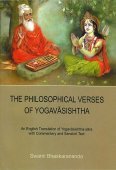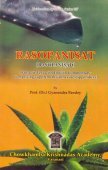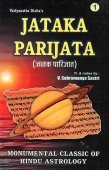Vi, Vī: 17 definitions
Introduction:
Vi means something in Buddhism, Pali, Hinduism, Sanskrit, the history of ancient India, Marathi, Jainism, Prakrit, Hindi, Tamil. If you want to know the exact meaning, history, etymology or English translation of this term then check out the descriptions on this page. Add your comment or reference to a book if you want to contribute to this summary article.
Images (photo gallery)
(+25 more images available)
In Hinduism
Vyakarana (Sanskrit grammar)
Source: Wikisource: A dictionary of Sanskrit grammarVi (वि).—(l) Unadi affix वि (vi) quoted by Panini in the rule जाग्रो (jāgro)sविचिण्णल्ङित्सु (viciṇṇalṅitsu) VII. 1.85; e.g. जागृविः (jāgṛviḥ); cf. जृशृस्तृजागृभ्यः क्विन् (jṛśṛstṛjāgṛbhyaḥ kvin) Unadi IV. 54; also वृदृभ्यां विन् (vṛdṛbhyāṃ vin) IV.53; (2) common term for the affixes क्विप्, क्विन्, च्वि, ण्वि, ण्विन्, विच् (kvip, kvin, cvi, ṇvi, ṇvin, vic) and विट् (viṭ). See व् (v),

Vyakarana (व्याकरण, vyākaraṇa) refers to Sanskrit grammar and represents one of the six additional sciences (vedanga) to be studied along with the Vedas. Vyakarana concerns itself with the rules of Sanskrit grammar and linguistic analysis in order to establish the correct context of words and sentences.
In Buddhism
Theravada (major branch of Buddhism)
Source: Journey to Nibbana: Patthana DhamaVi means distinctinct, particular, special.
Theravāda is a major branch of Buddhism having the the Pali canon (tipitaka) as their canonical literature, which includes the vinaya-pitaka (monastic rules), the sutta-pitaka (Buddhist sermons) and the abhidhamma-pitaka (philosophy and psychology).
India history and geography
Source: Cologne Digital Sanskrit Dictionaries: Indian Epigraphical GlossaryVi.—(CITD), abbreviation of Telugu vinnapamulu, represen- tation or saying. It may stand for visālu (visā or vīsa) also. Note: vi is defined in the “Indian epigraphical glossary” as it can be found on ancient inscriptions commonly written in Sanskrit, Prakrit or Dravidian languages.

The history of India traces the identification of countries, villages, towns and other regions of India, as well as mythology, zoology, royal dynasties, rulers, tribes, local festivities and traditions and regional languages. Ancient India enjoyed religious freedom and encourages the path of Dharma, a concept common to Buddhism, Hinduism, and Jainism.
Languages of India and abroad
Marathi-English dictionary
Source: DDSA: The Molesworth Marathi and English Dictionaryvi (वि).—S A particle and prefix implying, I. Separation, disjunction; II. Aversion, repugnance; III. Variety, difference; IV. Opposition, contrariety. It generaly corresponds with one or other of the English prefixes a, ex, dis, de, in, un; and it is frequently redundant or expletive.
Source: DDSA: The Aryabhusan school dictionary, Marathi-Englishvi (वि).—A particle and prefix implying sep- aration, aversion, variety, opposition &c.
Marathi is an Indo-European language having over 70 million native speakers people in (predominantly) Maharashtra India. Marathi, like many other Indo-Aryan languages, evolved from early forms of Prakrit, which itself is a subset of Sanskrit, one of the most ancient languages of the world.
Sanskrit dictionary
Source: DDSA: The practical Sanskrit-English dictionaryVi (वि).—ind.
1) As a prefix to verbs and nouns it expresses:-(a) separation, disjunction (apart, asunder, away, off &c.), as वियुज्, विहृ, विचल् (viyuj, vihṛ, vical) &c.; (b) the reverse of an action; as क्री (krī) 'to buy'; विक्री (vikrī), 'to sell'; स्मृ (smṛ) 'to remember'; विस्मृ (vismṛ) 'to forget'; (c) division; as विभज्, विभाग (vibhaj, vibhāga); (d) distinction; as विशिष्, विशेष, विविच्, विवेक (viśiṣ, viśeṣa, vivic, viveka); (e) discrimination; व्यवच्छेद (vyavaccheda) (f) order, arrangement; as विधा, विरच् (vidhā, virac); (g) opposition; as विरुध्, विरोध (virudh, virodha); (h) privation; as विनी, विनयन (vinī, vinayana); (i) deliberation, as विचर्, विचार (vicar, vicāra); (j) intensity; विध्वंस (vidhvaṃsa).
2) As a prefix to nouns or adjectives not immediately connected with roots, वि (vi) expresses (a) negation or privation, in which case it is used much in the same way as अ (a) or निर् (nir), i. e. it forms Bah. comp.; विधवा, व्यसुः (vidhavā, vyasuḥ) &c.; (b) intensity, greatness; as विकराल (vikarāla); (c) variety, as विचित्र (vicitra); (d) difference; as विलक्षण (vilakṣaṇa); (e) manifoldness, as विविध (vividha); (f) contrariety, opposition, as विलोम (viloma); (g) change, as विकार (vikāra); (h) impropriety, as विजन्मन् (vijanman).
--- OR ---
Vi (वि).—m., f. [ve-ḍit Uṇādi-sūtra 4.145]
1) A bird; विकुल (vikula)(= pakṣikula) माकुलमायत-लीनताम् (mākulamāyata-līnatām) Rām. ch.4.43; आपततो विरलं (āpatato viralaṃ) (viḥ + alam) घनतोऽयात् (ghanato'yāt) ibid.4.97.
2) A horse.
3) A goer.
4) A rein.
5) An epithet of the Soma.
6) A sacrificer (mostly Ved. in the last four senses).
Derivable forms: viḥ (विः).
--- OR ---
Vī (वी).—I. 2 P. (veti, rarely used in classical literature)
1) To go, move.
2) To approach.
3) To pervade.
4) To bring, convey.
5) To throw, cast.
6) To eat, consume.
7) To obtain.
8) To conceive, bring forth.
9) To be born or produced.
1) To shine, be beautiful.
11) To desire, wish.
12) To shine. -II. (vi + i) 2 P.
1) To go away, depart; तस्यामहं त्वयि च संप्रति वीतचिन्तः (tasyāmahaṃ tvayi ca saṃprati vītacintaḥ) Ś.4.13; so वीतभय, वीतक्रोध (vītabhaya, vītakrodha), etc.
2) To undergo a change; सदृशंत्रिषु लिङ्गेषु यन्न व्योति तदव्ययम् (sadṛśaṃtriṣu liṅgeṣu yanna vyoti tadavyayam) Sk.
3) To spend.
4) To be diffused, to spread.
5) To vanish, disappear.
6) To cross over, traverse.
--- OR ---
Vī (वी).—
1) Act of going, motion.
2) A female bird.
Derivable forms: vīḥ (वीः).
Source: Cologne Digital Sanskrit Dictionaries: Edgerton Buddhist Hybrid Sanskrit DictionaryVi (वि).—or (a)vi (AMg. etc. vi, avi) = pi, Sanskrit api; perhaps in Saddharmapuṇḍarīka 198.6 (verse) kāvi, all mss., = Sanskrit kāpi, ed. em. kāci (= kācid).
Source: Cologne Digital Sanskrit Dictionaries: Shabda-Sagara Sanskrit-English DictionaryVi (वि).—mf. (-viḥ-vī) 1. A bird. 2. The eye. 3. Heaven. 4. The region of the wind. 5. A horse. Ind. A particle and prefix, implying:—1. Certainty, ascertainment, as vivektuṃ to determine, to judge. 2. Separation, disjunction, as viyoktuṃ to disjoin. 3. Aversion, repugnance, as viroddhuṃ to oppose. 4. Impatience, intolerance, as vimṛṣṭuṃ to be impatient. 5. Variety, difference, viśeṣṭuṃ to distinguish. 6. Cause, motive, vidhātuṃ to prescribe or order. 7. Motion, progress, vicarituṃ to go. 8. Privation, viṇītuṃ to take away. It generally corresponds to the English adjuncts, a, ex, de, dis, in, un, &c. and is frequently an expletive. E. vā to go, Unadi aff. in with the effect of ḍit or ḍa, which ejects the final syllable; or vā-ki aff.
--- OR ---
Vī (वी).—r. 2nd cl. (veti) 1. To go, to move. 2. To pervade. 3. To conceive, to be impregnated. 4. To desire. 5. To throw or send. 6. To eat. 7. To be beautiful. With sam prefixed, To invest, to inclose, to cover or wrap round or over.
--- OR ---
Vī (वी).—m.
(-vīḥ) 1. Going. moving. 2. Covering. E. vī to go, aff. kvip .
Source: Cologne Digital Sanskrit Dictionaries: Benfey Sanskrit-English DictionaryVi (वि).—i. e. dvi, prep. I. Combined and compounded with verbs and their derivatives. Ii. Compounded with nouns. It implies, 1. Separation, cf. viyoga. 2. Privation, cf. vi-kaca. 3. Wrongness, cf. vikarman; baseness, cf. vi -yonī; opposition, cf. vi-loma. 4. Difference, cf. vilakṣaṇa. 5. Spreading; falling in different directions, asunder, cf. vi-kṛ10, e. g. vi-kīrṇa-keśa. 6. Manifoldness, much, cf. vikarman.
— Cf. probably [Latin] vi, in di-vi-dere.
--- OR ---
Vi (वि).—m., f. vī, 1. A bird,
--- OR ---
Vī (वी).—ii. 2, [Parasmaipada.] (ved.), 1. To go. 2. To approach. 3. To pervade, to obtain. 4. To conceive, to grow pregnant. 5. To desire, to love,
— Cf. [Latin] in -vītus (Not liking), in-vitare, To invite.
--- OR ---
Vī (वी).—f. Going.
Source: Cologne Digital Sanskrit Dictionaries: Cappeller Sanskrit-English DictionaryVi (वि).—1. [masculine] bird.
--- OR ---
Vi (वि).—2. [adverb] apart, asunder, away, out (mostly °— in verbs & nouns, to express division or distance).
--- OR ---
Vī (वी).—1. veti [participle] vīta (q.v.) seek, pursue, strive after, fall upon, attack, win, take hold of, enjoy; undertake, begin, urge, impel, further, promote; procure, get for, help to (2 [accusative]).
--- OR ---
Vī (वी).—2. ([nominative] vīs) v. devavī & padavī.
--- OR ---
Vī (वी).—3. [Intensive] vevīyate flutter, flicker.
--- OR ---
Vī (वी).—go asunder, disperse, spread over, pervade; cease, disappear, perish.
Vī is a Sanskrit compound consisting of the terms vi and i (इ).
Source: Cologne Digital Sanskrit Dictionaries: Monier-Williams Sanskrit-English Dictionary1) Vi (वि):—1. vi m. ([nominative case] vis or ves [accusative] vim [genitive case] [ablative] ves; [plural] [nominative case] [accusative] vayas [acc. vīn, [Bhaṭṭi-kāvya]]; vibhis, vibhyas, vīnām) a bird (also applied to horses, arrows, and the Maruts), [Ṛg-veda; Vājasaneyi-saṃhitā; Pañcaviṃśa-brāhmaṇa,] (also occurring in later language).
2) cf. 1. vayas; [Greek] οἰωνός for ὀϝιωνος; [Latin] a-vis; [according to] to some [German] Ei; [Anglo-Saxon] aég; [English] egg.
3) 2. vi n. an artificial word said to be = anna, [Śatapatha-brāhmaṇa]
4) 3. vi ind. ([probably] for an original dvi, meaning ‘in two parts’; and opp. to sam q.v.) apart, asunder, in different directions, to and fro, about, away, away from, off, without, [Ṛg-veda] etc. etc. In, [Ṛg-veda] it appears also as a [preposition] with [accusative] denoting ‘through’ or ‘between’ (with ellipse of the verb, [e.g. i, 181, 5; x, 86, 20 etc.]) It is [especially] used as a prefix to verbs or nouns and other parts of speech derived from verbs, to express ‘division’, ‘distinction’, ‘distribution’, ‘arrangement’, ‘order’, ‘opposition’, or ‘deliberation’ (cf. vi-√bhid, -śiṣ, -dhā, -rudh, -car, with their nominal derivatives)
5) sometimes it gives a meaning opposite to the idea contained in the simple root (e.g. √krī, ‘to buy’; vi-√krī, ‘to sell’), or it intensifies that idea (e.g. √hiṃs, ‘to injure’; vi-√hiṃs, ‘to injure severely’). The above 3. vi may also be used in forming compounds not immediately referable to verbs, in which cases it may express ‘difference’ (cf. 1. vi-lakṣaṇa), ‘change’ or ‘variety’ (cf. vi-citra), ‘intensity’ (cf. vi-karāla), ‘manifoldness’ (cf. vi-vidha), ‘contrariety’ (cf. vi-loma), ‘deviation from right’ (cf. vi-śīla), ‘negation’ or ‘privation’ (cf. vi-kaccha, being often used like 3. a, nir, and nis [qq. vv.], and like the [Latin] dis, se, and the English a, dis, in, un etc.)
6) in some cases it does not seem to modify the meaning of the simple word at all (cf. vi-jāmi, vi-jāmātṛ)
7) it is also used to form proper names out of other proper names (e.g. vi-koka, vi-pṛthu, vi-viṃśa). To save space such words are here mostly collected under one article
8) but words having several subordinate compounds will be found sub voce
9) Vī (वी):—1. vī [class] 2. [Parasmaipada] ([Dhātupāṭha xxiv, 39]) veti ([according to] to some in the conjug. tenses substituted for √aj; 2. sg. veṣi also as [imperative] [Ṛg-veda]; 3. [plural] vyanti, [Ṛg-veda; Atharva-veda; Brāhmaṇa]; [subjunctive] 2. 3. sg. ves, [Ṛg-veda]; [imperative] vIhi/, vītāt, [ib.]; 3. [plural] viyantu, [Taittirīya-saṃhitā]; p. [Ātmanepada] vyāna, [Ṛg-veda]; [perfect tense] vivāya, vivye, [ib.]; [Aorist] avaiṣīt [grammar]; 3. [plural] aveṣan [subjunctive] veṣat, [Ṛg-veda]; [future] vetā, veṣyati [infinitive mood] vetum [grammar]),
—to go, approach, (either as a friend id est. ‘seek or take eagerly, grasp, seize, accept, enjoy’, or as an enemy id est. ‘fall upon, attack, assail, visit, punish, avenge’), [Ṛg-veda; Atharva-veda; Taittirīya-saṃhitā; Brāhmaṇa];
—to set in motion, arouse, excite, impel, [Ṛg-veda];
—to further, promote, lead or bring or help any one to (two [accusative]), [ib.];
—to get, procure, [ib.] :—[Passive voice] -vīyate etc., [Atharva-veda; Brāhmaṇa] :—[Causal] vāyayati or vāpayati ([Aorist] avīvayat), to cause to go or approach etc.;
—to impregnate, [Pāṇini 6-1, 55] :—[Desiderative] vivīṣati [grammar]:—[Intensive], See ā-√vī and √vevī.
10) cf. [according to] to some, [Latin] ve-nari; [German] weida, Weide, weiden.
11) 2. vī mfn. going to, eager for, desirous or fond of ([genitive case]), [Ṛg-veda i, 143, 5] (cf. deva-vī, pada-vī)
12) set in motion (See parṇa-v)
13) m. the act of going, motion, [cf. Lexicographers, esp. such as amarasiṃha, halāyudha, hemacandra, etc.]
14) 3. vī (vi- 5 √i) [Parasmaipada] vy-eti (3. [plural] viyanti; [imperfect tense] vy-ait; [perfect tense] vīyāya; [infinitive mood] vy-etum; for vyayati, vyayayati See √vyay),
—to go apart or in different directions, diverge, be diffused or scattered or distributed or divided or extended, [Ṛg-veda] etc. etc. ;
—to be lost, perish, disappear, [Upaniṣad; Mahābhārata] etc.;
—to go through, traverse, [Ṛg-veda; Vājasaneyi-saṃhitā; Aitareya-brāhmaṇa] :
—[Intensive] (or [class] 4. [Ātmanepada]) vīyate, to pass through, traverse, [Ṛg-veda]
15) 4. vī mfn. (weak form of √vye) covered (cf. hiraṇya-vī).
16) 5. vī m. = vi1, a bird (See takva-vī)
17) f. a female bird, [cf. Lexicographers, esp. such as amarasiṃha, halāyudha, hemacandra, etc.]
18) 6. vī in [compound]= 3. vi (in vī-kāśa, -cayana, -taṃsa, -nāha, -barha, -mārga, -rudh, -vadha, -vāha, -vidha, -vṛta, -sarpa, -hāra, qq.vv.)
Source: Cologne Digital Sanskrit Dictionaries: Yates Sanskrit-English Dictionary1) Vi (वि):—[vī (viḥ-vī)] 2. m. 3. f. A bird; the eye; heaven.
2) Vī (वी):—(la) veti 2. a. To go; pervade; conceive; desire; throw; eat.
3) (vīḥ) 3. m. Going; covering.
Source: DDSA: Paia-sadda-mahannavo; a comprehensive Prakrit Hindi dictionary (S)Vī (वी) in the Sanskrit language is related to the Prakrit word: Ve.
[Sanskrit to German]
Sanskrit, also spelled संस्कृतम् (saṃskṛtam), is an ancient language of India commonly seen as the grandmother of the Indo-European language family (even English!). Closely allied with Prakrit and Pali, Sanskrit is more exhaustive in both grammar and terms and has the most extensive collection of literature in the world, greatly surpassing its sister-languages Greek and Latin.
Hindi dictionary
Source: DDSA: A practical Hindi-English dictionaryVi (वि):——a prefix (generally to verb and nouns and other parts of speech derived from verbs) to express division, distinction, distribution, arrangement, opposition or deliberation as also through, between; sometimes it gives a meaning opposite to the idea contained in the simple root or also intensifies the idea.
...
Prakrit-English dictionary
Source: DDSA: Paia-sadda-mahannavo; a comprehensive Prakrit Hindi dictionary1) Vi (वि) in the Prakrit language is related to the Sanskrit word: Vid.
2) Vi (वि) also relates to the Sanskrit word: Viṣ.
Prakrit is an ancient language closely associated with both Pali and Sanskrit. Jain literature is often composed in this language or sub-dialects, such as the Agamas and their commentaries which are written in Ardhamagadhi and Maharashtri Prakrit. The earliest extant texts can be dated to as early as the 4th century BCE although core portions might be older.
Kannada-English dictionary
Source: Alar: Kannada-English corpusVi (ವಿ):—
1) [noun] any of a class (Aves) of warmblooded, two-legged, egg-laying vertebrates with feathers and wings; a bird.
2) [noun] a horse.
3) [noun] a leather strap, fastened to each end of the bit of a bridle, by which the rider or driver controls a horse or other animal by pulling so as to exert pressure on the bit; reins.
4) [noun] the juice of soma plant (Sarcostemma acidum of Asclepiadaceae family), used as a drink.
Kannada is a Dravidian language (as opposed to the Indo-European language family) mainly spoken in the southwestern region of India.
See also (Relevant definitions)
Starts with (+9980): Bileshaya, Bilva, Bilvamangala, Bilvapatra, Bimba, Varisa, Vi hufng trung, Vi-jnapi, Via, Via, Viabbha, Viada, Viada, Viadana, Viadda, Viaddha, Viaddha, Viaddhaka, Viaddhu, Viaddi.
Ends with (+2574): A-vinapavi, Abhavi, Abhibhavi, Abhidhavi, Abhinavi, Abhinnadashapurvi, Abhisametavi, Abhisevi, Abhitthavi, Abhivi, Abhracchavi, Abovi, Abravi, Acalavi, Acatikkilavi, Accarigavi, Accasavi, Acchavi, Acuttavi, Acyutapadavi.
Full-text (+15651): Avi, Lavi, Livi, Kokanadacchavi, Kavi, Divi, Darava, Rajavi, Padavi, Aikshava, Pavin, Hambharavaviravin, Bhavabhibhavin, Viravin, Duhkhajivin, Upajivin, Sauvastava, Didivi, Sthavi, Bharavi.
Relevant text
One of your search terms exceeds the minimun character amount per search term. This amount currently equals 2.
No search results for Vi, Vī, Vi-i; (plurals include: is) in any book or story.
Related products
(+9 more products available)











